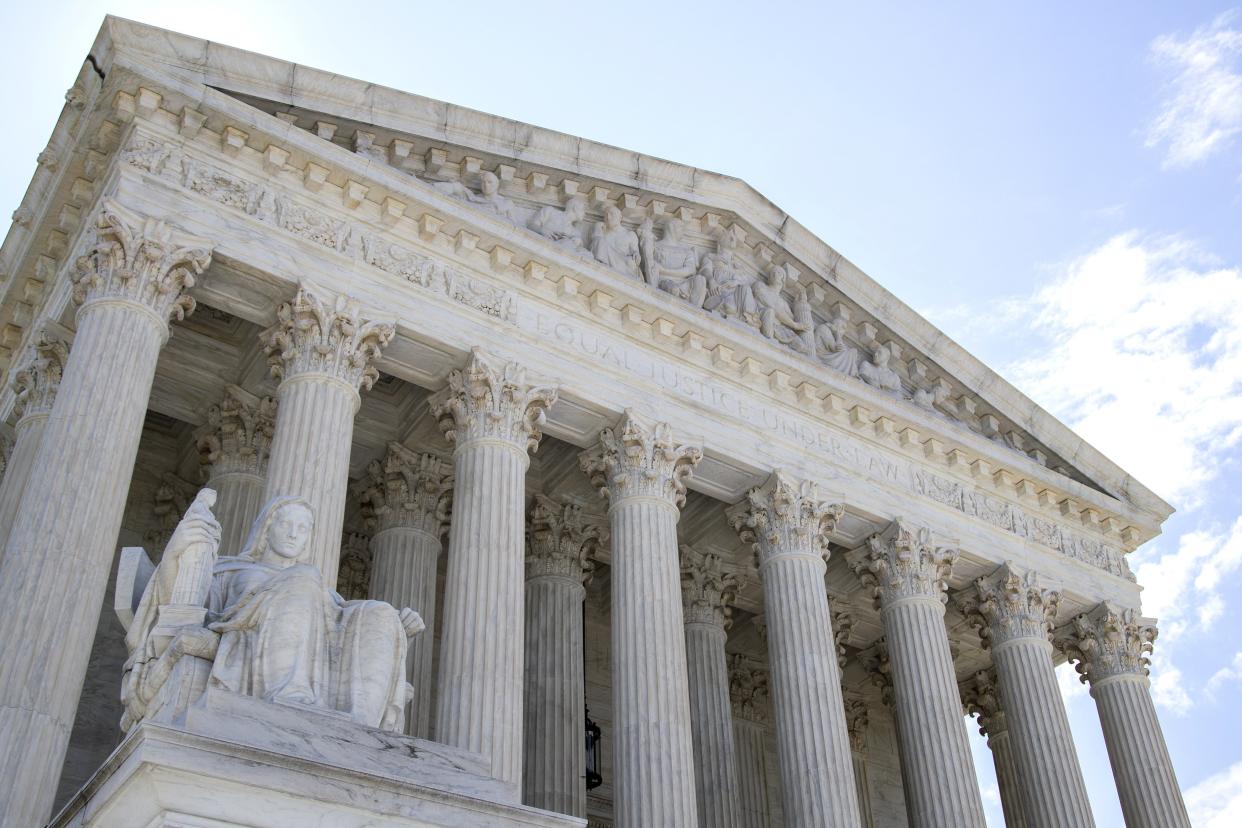Supreme Court declines to hear Ohio State's appeal, lets Strauss survivors sue university

- Oops!Something went wrong.Please try again later.
Ohio State University will not have its day at the U.S. Supreme Court.
The nation's highest court announced Monday that justices declined to hear Ohio State's appeal of a Title IX case related to those sexually abused by former university doctor Richard Strauss. Their decision means that more than 230 men in two related cases are allowed to proceed with their lawsuit against Ohio State over Strauss' abuse.
Since the Supreme Court chose not to review the case, it will go back to the trial court for further legal proceedings. Justices did not comment about its decision not to hear the cases.
Ohio State asked the court to consider two legal questions related to Title IX claims, which have been at the heart of the university's argument against the Strauss survivors' legal case. The questions were whether, or to what extent, a Title IX claim accrues after the date on which the alleged injury occurred; and whether, or to what extent, Title IX’s implied private right of action extends to individuals who are not current or prospective students or employees.
"Ohio State is disappointed by the United States Supreme Court’s decision not to review a case involving Title IX claims that has a significant legal impact on colleges and universities across the nation as well as their students," university spokesman Ben Johnson said.
In March, Ohio State filed an appeal writ with the Supreme Court, asking the justices to review a divided decision by the 6th U.S. Circuit Court of Appeals regarding the statute of limitations on sexual abuse claims and the scope of federal education protections under Title IX.
Law firms Emery Celli Brinckerhoff Abady Ward & Maazel LLP, Scott Elliot Smith LPA; and Public Justice, who represent the Strauss survivors, said they were "very pleased" with the court's decision.
"We look forward to returning to the trial court, having our clients’ stories heard, and gathering further evidence of OSU’s widespread cover-up of Dr. Strauss’s serial predation," they said in a joint release. "For decades, OSU has attempted to run out the clock on its accountability and protect its reputation through a series of actions aimed at hiding its role in perpetuating the serial sexual abuse that OSU students and others experienced on the university’s watch.
"Now, after more than four decades, we are one critical step closer to justice for the survivors and to bringing about meaningful change for current and future generations of OSU students.”
Who is Richard Strauss?
Strauss was hired by Ohio State in September 1978 as an assistant professor in the college of medicine. Investigators found that university officials began receiving complaints and had knowledge of Strauss’ misconduct as early as 1979, months after he arrived.
Strauss’ abuse went on for years and ranged from subtle acts under the pretext of medical purpose to more-overt actions. He fondled patients’ genitals and conducted genital or rectal exams even when they weren't medically necessary.
An independent investigative report released by Ohio State University in May 2019 said Strauss sexually abused at least 177 students throughout his 20-year tenure as an athletics and student health doctor at the school.
He died by suicide in 2005, more than a decade before Ohio State would begin publicly investigating his abuses.
How are Strauss survivors reacting to the decision?
Steve Snyder-Hill, a former Ohio State student and one of the more vocal Strauss survivors, said he was shocked and relieved to see the court's decision.
"No colleges have treated sexual assault survivors the way they have treated us," he said. "Our original judge said there is no doubt OSU's role in this, but the legal system failed us. But it looks like the legal system has not failed us. Justice has prevailed."
Johnson said "the university remains committed to supporting survivors." Ohio State has offered settlements to all male students who filed lawsuits and has settled with more than half of the plaintiffs, totaling 296 individuals for more than $60 million. The university is also covering the cost of professionally certified counseling and treatment for all survivors and family members.
"Ohio State is a fundamentally different university today than when Strauss was employed and over the past 20 years has committed substantial resources to prevent and address sexual misconduct," Johnson said.
Sheridan Hendrix is a higher education reporter for The Columbus Dispatch. Sign up for her Mobile Newsroom newsletter here and Extra Credit, her education newsletter, here.
shendrix@dispatch.com
@sheridan120
This article originally appeared on The Columbus Dispatch: U.S. Supreme Court allows Strauss survivors sue Ohio State


